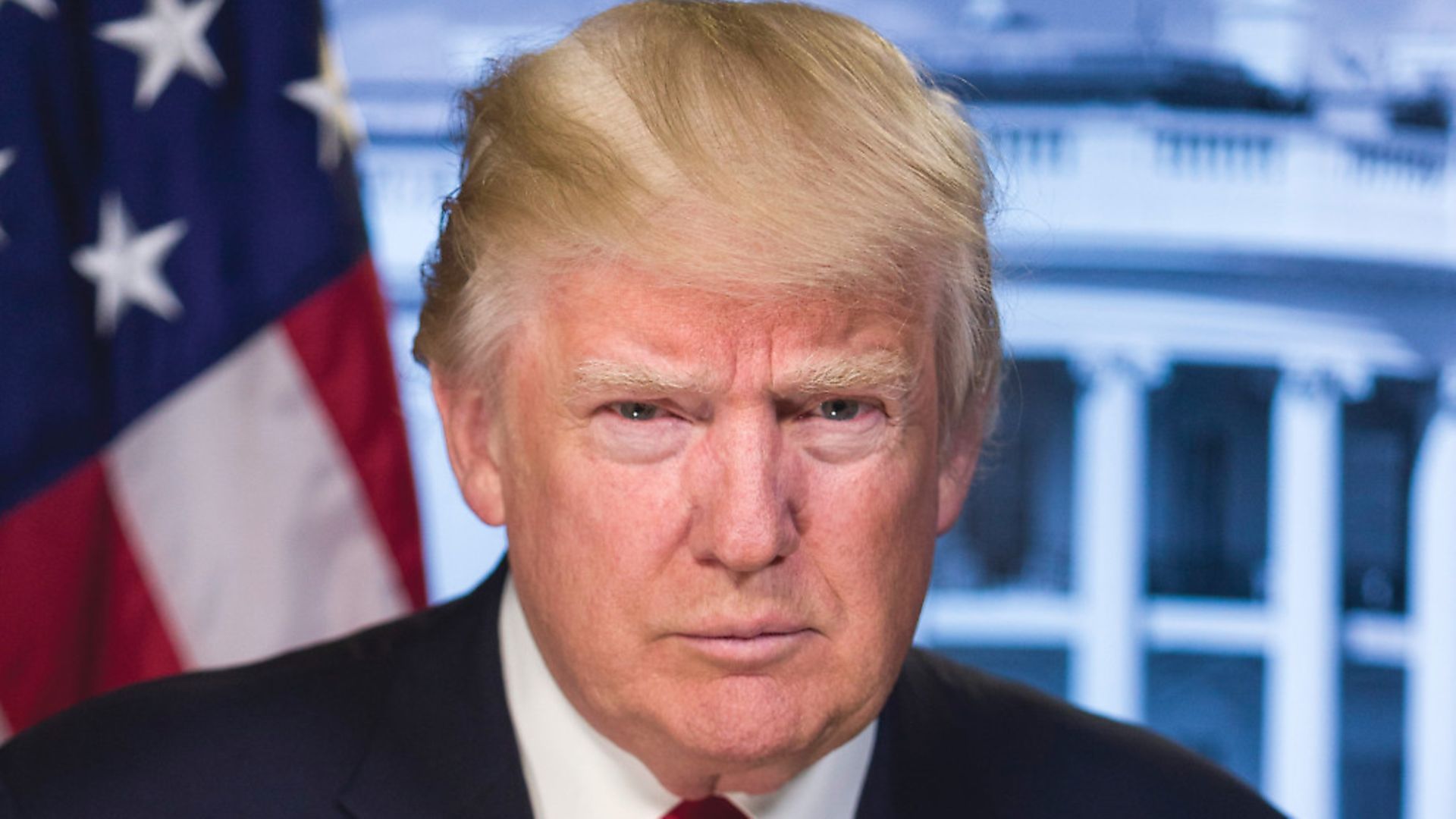
The president’s protectionist agenda poses a very real threat to the NHS, warn HOLLY JARMAN and TAMARA HERVEY
As he tears up trade deals and international agreements, the world is being left in no doubt about exactly what Donald Trump means by his much-trumpeted America First policy, and the risks it entails. Few on this side of the Atlantic, however, may be aware of one of the spin-offs of this policy, an initiative known as American Patients First. And this is worrying, because its effects will certainly be felt in the UK.
In typical Trumpian rhetoric, the president announced the policy would ‘derail the gravy train’ in the health-care system and lower drug prices for US patients. As with most things, though, the situation is rather more complex.
Effectively, Trump wants foreign health systems like the NHS to pay more for drugs. Under the new policy, US officials plan to use trade negotiations to pressure other countries into changing the way they regulate pharmaceuticals. Trump’s narrative blames foreign governments for ‘free-riding’ on American investment in the drugs industry. The US government and consumers, the logic goes, pay more for drugs because other countries are not paying their share of the necessary research and development to bring innovative drugs to the market.
Drugs are significantly cheaper in European countries than in the USA because governments bargain with the industry to set prices. European states also control which drugs are available in national health systems, by reference to clinical and cost effectiveness. In the UK, this process happens through the National Institute for Clinical Excellence (NICE). In practice, NICE assessment of new drugs means that many expensive ones don’t reach NHS patients where their relative benefits are small, in comparison with their cost to the NHS.
There are clear links between Trump’s administration and key players in the pharma industry. American Patients First represents those interests. When it was announced, share prices in pharma spiked. Trump’s policy does not represent the interests of the public nearly so well. Nor does it represent the interests of countries where negotiating power and general regulatory environment keep drug prices relatively low. The UK is obviously one of those countries.
Until now, the UK has negotiated trade deals as part of a block with the EU. These negotiations, while far from perfect from the point of view of the NHS and health, have paid significant attention to the European ways of organising and financing health-care.
The (failed) TTIP, for instance, included many derogations aimed at protecting national health systems. These included not only aspects related to drug pricing, but also to access of health insurance companies, global hospital chains, and other private providers of health services, to European markets.
When the UK leaves the EU, it will be negotiating trade deals alone, as a much smaller global player. The government has already conducted some talks with US officials about a US-UK trade deal.
The important barriers to trade in pharma are not tariffs (which are low or non-existent), but regulatory standards and arrangements.
The US has a history of targeting these standards, such as prohibition on direct-to-consumer marketing of drugs, in its trade negotiations. Trump’s government is likely to push American Patients First in its negotiations. The relative size and economic power of the UK to the US, and the need for Theresa May to show a Brexit ‘win’ in securing a trade deal with the US, are important factors determining the likelihood of success.
It is exceptionally difficult for health policy concerns to be ‘heard’ during trade negotiations. Health policy experts are not among the negotiators. The opportunities for parliamentary or other stakeholder scrutiny are also extremely limited. Jeremy Hunt, the health minister, when giving evidence to a parliamentary committee, said he had talked with the pharma industry, but mentioned no other health stakeholders.
In the total package of a US-UK trade agreement, aspects of the regulation that surrounds UK drug pricing might well be part of a compromise that the UK offers. If the government did so, it would go back on its assurances to parliament that Brexit will ‘do no harm’ to health. Those who support the NHS should seek to hold the UK government to account on that promise.
Holly Jarman, Ph.D., is John G. Searle assistant professor, Department of Health Policy and Management, University of Michigan; Tamara Hervey is Jean Monnet professor of European Union Law at the University of Sheffield









